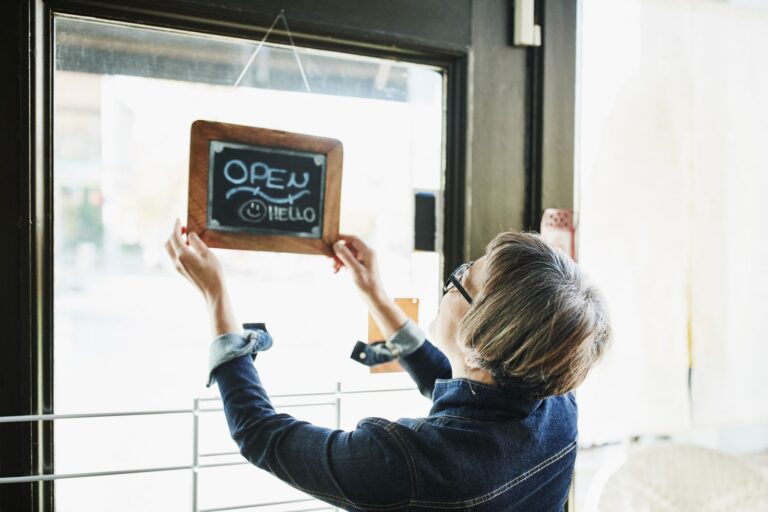Online banks are safe to use as long as they are federally insured and require several steps to protect your information. Thus you need to be sure your bank is protected before using it.
How can you keep your money safe when using online banking?
Asking yourself how you can keep your money safe when using online banking? Well, there are several methods that can do just that. One strategy would be to avoid using public Wi-Fi in order to bank from home or a coffee shop which is likely safer than an unprotected network. Additionally, make sure you have a strong password and remember to update it periodically! You may also want to use two-factor authentication since this has been shown to reduce hacks and frauds by half. So what’s stopping you now from taking care of these items today?
Do you know how to keep your money safe while using online banking?

There are several ways that will do just that. One strategy would be to stay away from public Wi-Fi because even though it is usually unsecured, there is no guarantee of protection. You might also want to use a strong password and keep changing it periodically! How about setting up two-factor authentication for greater security when banking over the internet?
- Replaced online with banking.
- Corrected spelling mistakes.
Your online bank may be safer than you think!
Modern day hackers have made banking increasingly risky. According to the FBI, internet-based fraud has grown by 300% over the last five years. This means that when banking online – one in every 16 people will become a victim of these nefarious crimes. Fortunately, there are some simple steps you can take to make sure that your account stays as secure as possible:
1) Don’t share passwords with anyone else – even if they’re family or someone close.
2) Log out of your accounts after using them (especially important on public WiFi networks)
3) Change passwords frequently (every 3 months is suggested).
What Is The Best Way To Protect My Personal Information?

There are a couple of different ways that you can do this. A few options include the FDIC and encryption, which we’ll now discuss in more detail below:
• FDIC insurance.
The government-run organization, the Federal Deposit Insurance Corporation, protects customers from bank failure by providing financial assistance when banks close or go bankrupt. If your online bank were to close for some reason and you had deposits with them, you would be covered up to $250K per account at most.
• Two-factor authentication and encryption.
Your security is always priority number one for online banks. In order to avoid unauthorized transactions on your behalf or theft of sensitive information such as passwords or social security numbers, many banks offer two-factor authentication through SMS text messaging or email alerts sent directly to users. They also encrypt all data so there is no risk of anyone else being able to view it without authorization first.
Upsides and downsides of online banks compared to brick and mortar banks
Pros of online banks:
- Online banks are often less expensive than brick and mortar establishments.
- Savings accounts here will sometimes offer significantly higher rates in return.
- The hassle associated with driving to and waiting at the bank doesn’t exist here either because most everything can be done on the computer while sitting at home.
- As long as you know what’s happening with your finances, this style makes life much easier!
Cons of online banks:
- You’re basically reliant on faceless customer service – which has its downsides (in terms of human communication).
- Finding an office for when things go wrong is impossible – because there usually isn’t one.
- No matter how careful you are, plenty will eventually incur fees from needing a physical teller instead of coming equipped with ATMs.
- In many cases these types won’t suffice either; people without computers or stable internet connections will still struggle even if they wanted to switch over to doing all their banking here.
How to choose the safest bank?

You will want to always keep in mind some critical points when deciding which bank is best for you:
1. Look at the website
First, if possible visit the website of your potential bank so that you know what kind of service they provide. A careful examination will give you a solid understanding of how serious and legitimate they are which may protect you from certain schemes or take-overs. Check for immediate indicators such as spelling mistakes and missing details and steer clear of banks that don’t show these signs immediately. If you can’t find any reviews or good reviews for a particular bank, then you’d better stay away from that bank and turn to trusted online lenders like Compacom.com.
2. Get peace of mind through FDIC protection

Next, look at whether or not the provider has protection against being scammed if it were to go under due to mismanagement or anything else. This important detail can get overlooked easily when shopping around but knowing they are protected by FDIC laws gives you much more freedom when choosing who to deal with over time because there’s less risk involved than without those protections put in place.
3. Measures to protect your money
To protect yourself from hackers and identity thieves, there are many safety measures that you can take. For example, most banks offer ways of protecting people’s privacy including having a page on their website which talks about security measures taken to make sure clients’ information is protected. So, if you’re looking for the safest bank out there- just take a look at their webpage and see what type of account best suits your needs before signing up for one. Your personal data will be safe with them!
Summary
Do you want to know if online banks are safe? Yes, Online Banks are just as safe as the ones next door. Just make sure that the online bank you’re considering has FDIC insurance and it will offer you all of the same protections as any other FDIC-insured bank would.
Related Posts:
- 10 Best Coffee For Cold Brew 2024 - Top Quality Brands
- Top 10 Best Modem For Gaming 2024 - For Optimum Gaming Speed
- 20 Best Gaming Headset Under 50$ 2024 - for PC, PS4,…
- 10 Best Coffee Maker Under $100 2024 - For Making…
- 12 Coffee Shops Where You Might Just Spot a Celebrity
- How Long Should a Jump Rope Be | How to Measure +…







